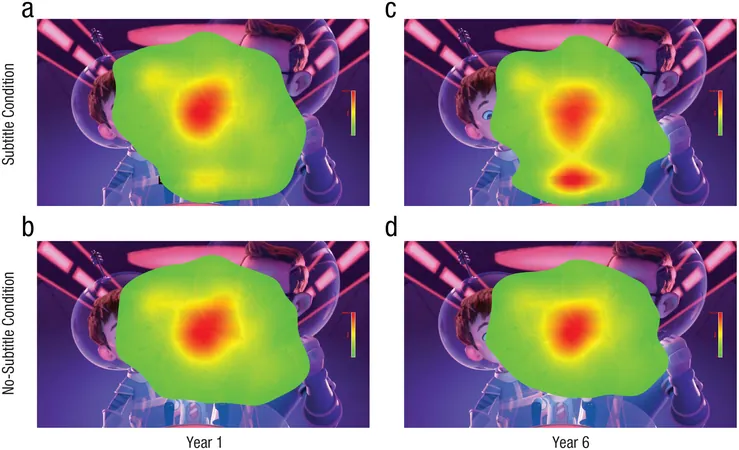
This Surprising Drink Might Hold the Key to Slowing Alzheimer’s Progression, New Research Reveals!
2025-04-01
Author: Arjun
Alzheimer’s disease, the most prevalent form of dementia, impacts approximately 60% to 80% of dementia cases globally. By 2024, nearly 7 million Americans over 65 are expected to be living with this debilitating condition, which currently has no cure. Rather than seeking a magic pill, researchers are now exploring how certain foods may help in preventing or slowing down the onset of Alzheimer’s.
A recent collaborative study conducted by researchers from South America and Denmark delves deep into kefir, a fermented milk drink celebrated in the Balkans and Eastern Europe for its health benefits. This research stems from the hypothesis that a balanced gut microbiome could be instrumental in Alzheimer’s disease prevention. It turns out that kefir, loaded with probiotics—beneficial bacteria that promote gut health—offers even more promise than previously realized. Findings from this study, published in Brain Behavior and Immunity Integrative in April 2025, spotlight kefir’s significance in cognitive health.
How Was the Study Conducted?
The researchers meticulously combed through academic databases for studies that linked kefir to neurodegenerative diseases, including Alzheimer’s, Parkinson’s, and Huntington’s diseases. They narrowed their focus down to seven relevant studies—four involving rodents, two with fruit flies, and one with human participants.
Key Findings of the Review
Many exciting outcomes emerged from their scrutiny of these studies:
1. Reduced Accumulation of Beta-Amyloid: Four studies indicated that kefir consumption was associated with lower levels of harmful beta-amyloid plaques in the brain.
2. Enhanced Antioxidant Activity: Five studies reported increased antioxidant activity and diminished oxidative stress among those consuming kefir.
3. Decreased Neuro-Inflammation: Evidence from three studies demonstrated a reduction in neuro-inflammation, a risk factor in Alzheimer’s progression.
4. Lowered Brain Cell Death: Three studies noted that kefir consumption correlated with reduced neuronal death.
5. Improved Insulin and Glucose Metabolism: Three studies found enhancements in brain insulin and glucose pathways, vital for cognitive function.
6. Restoration of Gut Barrier: Two studies suggested that kefir may help repair the intestinal lining.
Notably, the human study revealed that individuals diagnosed with Alzheimer’s who included kefir in their diet exhibited amplified antioxidant activity and better performance on various memory assessments.
Practical Implications of This Research
Even if Alzheimer’s isn't a concern for you, incorporating kefir into your dietary routine could offer widespread health benefits. Its tangy flavor might be a strong start to your day, especially when blended into smoothies where it provides both liquid and probiotics.
Beyond probiotics, kefir brims with nutrients like proteins, unsaturated fats, carbohydrates, and an array of vitamins such as A, D, E, K, and numerous B vitamins, as well as essential minerals like calcium, phosphorus, potassium, and zinc. Notably, many carbohydrates in kefir are complex, providing sustenance for beneficial gut bacteria—making it a great option for gut health.
For those who are lactose intolerant, kefir's unique fermentation process significantly reduces lactose content, allowing many individuals to enjoy its health benefits without discomfort. There are also numerous flavored varieties available, though it's crucial to watch out for added sugars, which can average around 8 grams per serving.
Additionally, kefir is versatile: it can be prepared from various milk types (whole, skim, organic, grass-fed) or made from non-dairy options like coconut, soy, or oat milk—ensuring that even plant-based eaters can enjoy it. There’s even the option to create homemade water kefir using kefir grains.
The Bottom Line
Emerging research suggests that probiotic-rich foods like kefir could play a crucial role in preventing Alzheimer’s disease. While these findings are promising, more extensive human trials are necessary to validate the effects. Until then, adopting a balanced eating pattern, such as the MIND diet—which is rich in fruits, vegetables, whole grains, nuts, and healthy fats—can further support brain health.
Alongside dietary choices, maintaining an active lifestyle, developing strong social connections, ensuring sufficient sleep, and limiting alcohol and smoking are vital in safeguarding cognitive health.
Feeling overwhelmed? Start with small, manageable changes. Gradually reintegrate walking or reduce screen time before bed. Remember, even tiny steps can have significant impacts on your health and well-being! Is kefir your next health wonder? Embrace it and find out!





 Brasil (PT)
Brasil (PT)
 Canada (EN)
Canada (EN)
 Chile (ES)
Chile (ES)
 Česko (CS)
Česko (CS)
 대한민국 (KO)
대한민국 (KO)
 España (ES)
España (ES)
 France (FR)
France (FR)
 Hong Kong (EN)
Hong Kong (EN)
 Italia (IT)
Italia (IT)
 日本 (JA)
日本 (JA)
 Magyarország (HU)
Magyarország (HU)
 Norge (NO)
Norge (NO)
 Polska (PL)
Polska (PL)
 Schweiz (DE)
Schweiz (DE)
 Singapore (EN)
Singapore (EN)
 Sverige (SV)
Sverige (SV)
 Suomi (FI)
Suomi (FI)
 Türkiye (TR)
Türkiye (TR)
 الإمارات العربية المتحدة (AR)
الإمارات العربية المتحدة (AR)